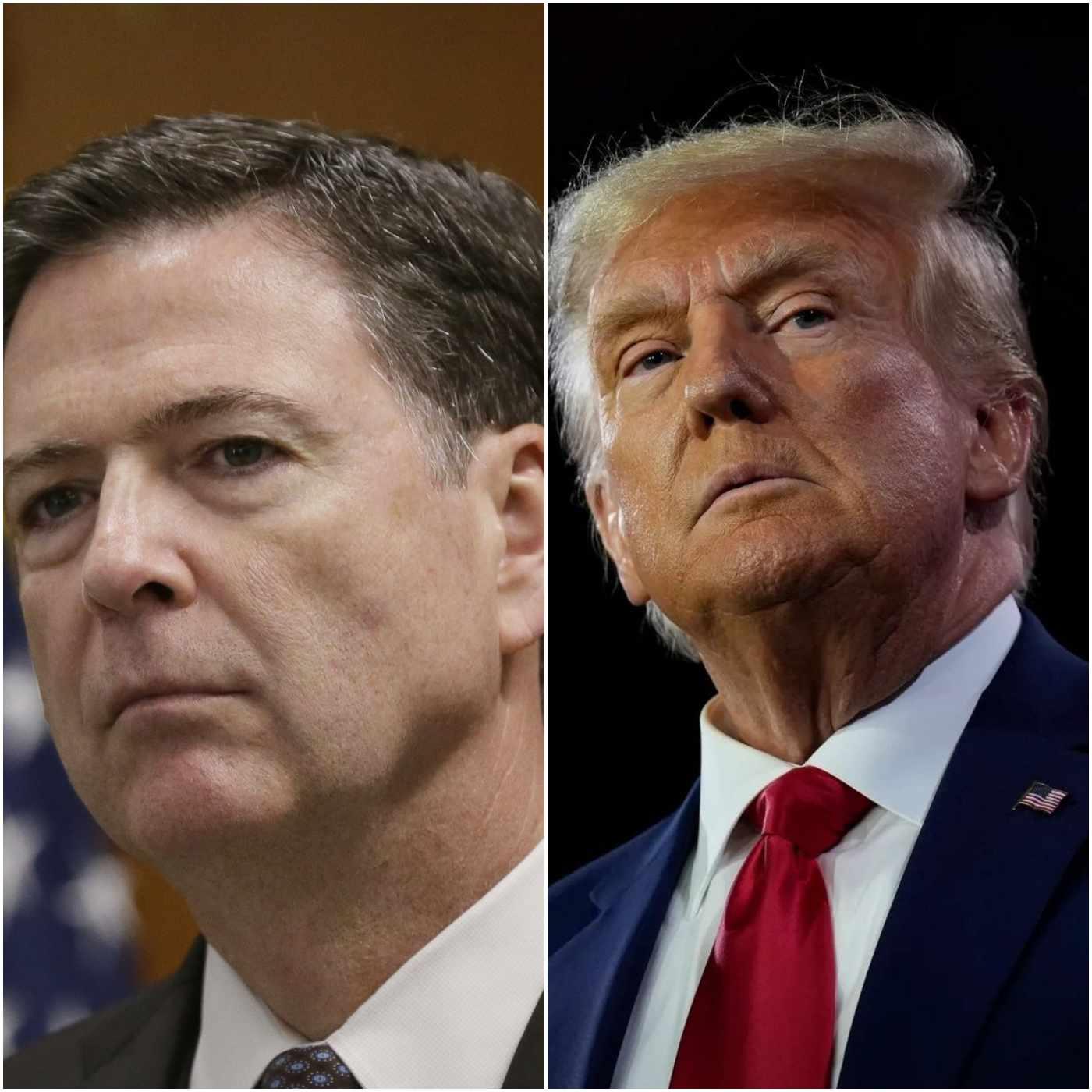🚨 BREAKING: Former FBI Director James Comey Files Motion to Dismiss Federal Indictment
Former FBI Director James Comey has filed a motion to dismiss his federal indictment, arguing that the prosecution is “vindictive and selective” and violates his Constitutional rights. The filing has reignited national debate over government overreach and legal fairness.

Comey claims that the government singled him out for prosecution due to his protected speech and President Trump’s personal animus. According to his legal team, this selective targeting undermines the principles of justice and threatens the integrity of the federal legal system.
The motion seeks dismissal with prejudice, meaning that the government cannot refile the charges. Comey’s lawyers argue that any lesser remedy would fail to address the unconstitutional nature of the prosecution and the government’s flagrant misconduct.
Comey’s filing highlights the tension between political motivations and legal processes. Experts warn that allowing personal or political animus to influence federal indictments could erode public trust in the justice system and set dangerous precedents.
Legal analysts have noted that the case could become a landmark example of the limits of prosecutorial discretion. If the court grants the dismissal, it may reinforce protections against politically motivated legal actions for public officials.
The former FBI Director argues that the government’s conduct violates both the First and Fifth Amendments. He claims that his protected speech and prior official actions were improperly used as justification for legal action against him.
Comey’s motion emphasizes the need to deter similar actions in the future. According to the filing, failure to dismiss would allow government actors to continue using selective prosecutions as a tool of intimidation or retaliation.
Supporters of Comey have praised the filing, describing it as a necessary step to uphold Constitutional protections. They argue that public officials must be able to speak freely without fear of being targeted through the judicial system.
Critics, however, argue that the motion may be a strategic legal maneuver to avoid accountability. They caution that courts may still consider the substance of the indictment even if the motion is based on claims of selective prosecution.
The case has drawn significant media attention, with both conservative and liberal outlets covering the implications of Comey’s filing. Analysts predict that the motion could shape legal discourse on prosecutorial ethics and Constitutional rights.
Historical context shows that accusations of selective prosecution are rare but serious. Federal courts have previously dismissed cases when evidence showed government bias or improper motives, underscoring the importance of impartiality in legal proceedings.
Comey’s legal team cited specific examples of what they view as vindictive behavior by prosecutors. They argue that decisions to pursue charges were influenced by prior disagreements and political considerations rather than objective legal standards.
The motion also addresses broader concerns about government accountability. It questions whether federal authorities can prosecute individuals without regard to Constitutional protections when political dynamics are involved, raising critical questions about checks and balances.
Observers note that the filing could impact public perception of the Department of Justice. Allegations of selective prosecution risk undermining confidence in law enforcement and the impartiality of legal proceedings, particularly in high-profile political cases.
If granted, dismissal with prejudice would prevent any re-filing of charges against Comey, effectively ending the case. This would set a precedent that may protect other public officials from prosecutions motivated by political animus.
Legal scholars argue that this motion could influence future cases involving politically sensitive prosecutions. Courts may become more vigilant in scrutinizing the motives behind indictments, especially when public officials are involved in controversial actions or decisions.
Comey’s filing underscores the intersection of law and politics. As a former FBI Director, his case draws national attention, highlighting the delicate balance between government authority, political influence, and individual Constitutional rights.
The motion raises questions about the role of the judiciary in checking potential abuses of power. By seeking dismissal, Comey’s legal team emphasizes that courts must intervene when prosecutorial actions appear motivated by vindictiveness rather than evidence.
Public reactions have been mixed. Some Americans view Comey’s filing as a crucial defense of free speech and legal fairness. Others remain skeptical, believing that high-profile figures often use legal tactics to delay or dismiss accountability.
Media coverage emphasizes the potential historical significance. Legal experts predict that the outcome could influence the handling of politically charged cases for years, reinforcing or reshaping precedents related to selective prosecution claims.
The motion details the alleged connections between Comey’s previous actions and the indictment. It claims that decisions during his tenure at the FBI, particularly those affecting political figures, have been cited as improper justification for the prosecution.
By requesting dismissal with prejudice, Comey’s legal team sends a strong message. They argue that anything less would fail to hold the government accountable for its allegedly unconstitutional conduct, emphasizing the need for judicial remedies that prevent recurrence.
The case also shines a spotlight on debates surrounding executive power and judicial independence. Comey’s claims touch on fundamental questions about whether government authorities can pursue legal actions based on personal or political motivations.
Legal observers are closely watching court proceedings. The decision will likely have lasting implications for federal prosecutions, particularly those involving former government officials who may face politically sensitive investigations.
Advocates for Comey argue that the motion reinforces the principle that no individual, regardless of position, should be subject to prosecution based on partisan or personal animus, preserving the integrity of the judicial system.
Even if the motion is denied, the arguments raised will likely influence future cases. Courts may need to address concerns about selective prosecution, reinforcing protections for defendants in politically charged legal battles.
The filing serves as a reminder that the justice system must balance accountability with Constitutional protections. Comey’s case exemplifies the challenges of maintaining impartiality while investigating actions of high-profile public officials.
Ultimately, James Comey’s motion to dismiss highlights key legal principles, including due process, protection against vindictive prosecution, and safeguarding free speech. The outcome will have significant implications for the intersection of law and politics in the United States.
This ongoing case will continue to dominate legal commentary. Experts predict that courts’ decisions will influence future prosecutorial conduct, ensuring that Constitutional rights remain central in politically sensitive federal investigations.
In conclusion, Comey’s motion to dismiss his federal indictment asserts that the prosecution is vindictive, selective, and unconstitutional. By seeking dismissal with prejudice, he challenges potential government overreach, emphasizing the importance of protecting Constitutional rights and preventing politically motivated prosecutions.
